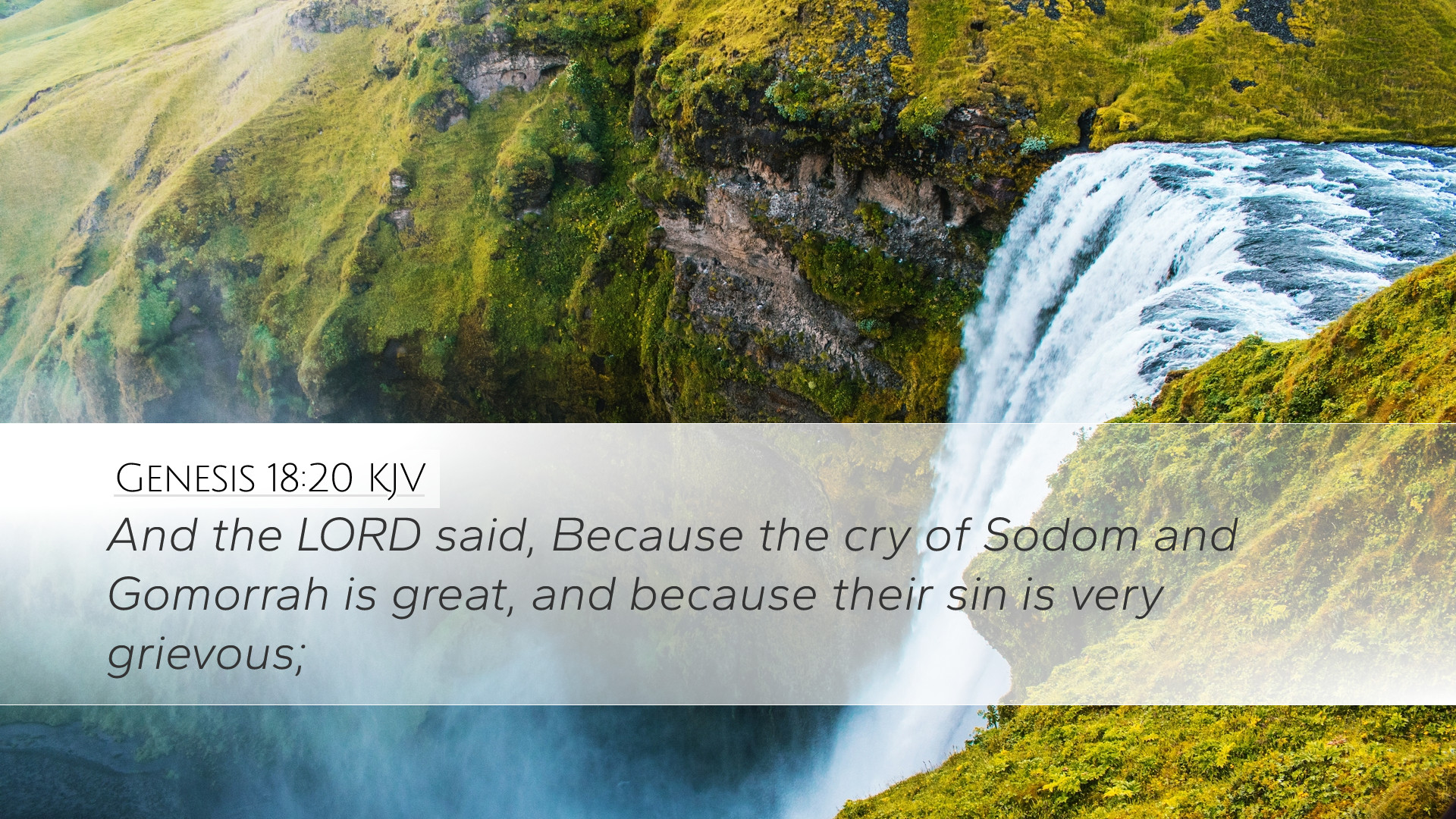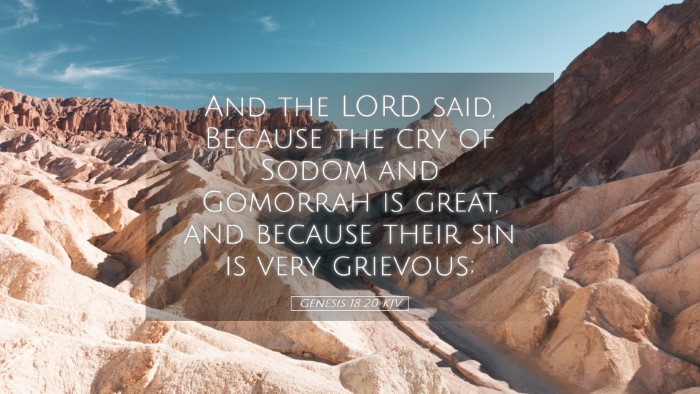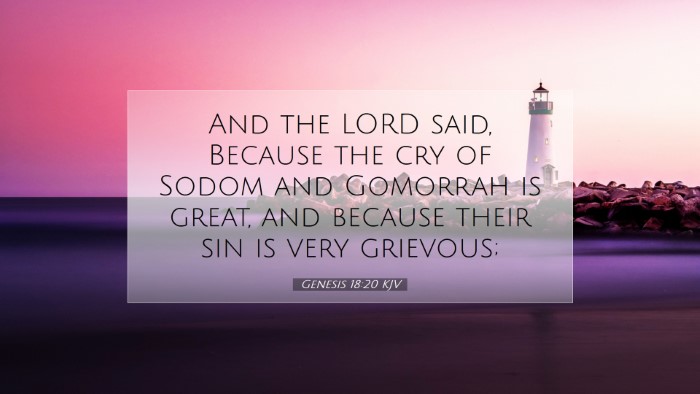Commentary on Genesis 18:20
Text of Genesis 18:20: "And the Lord said, 'Because the outcry against Sodom and Gomorrah is great and their sin is very grave.'"
Introduction
This verse marks a pivotal moment in the biblical narrative, where divine judgment is being deliberated. The surrounding context reveals God's intimate engagement with humanity, illustrating His omniscience and His providential governance over the affairs of nations and individuals alike.
Contextual Analysis
Genesis 18:20 occurs in the broader narrative where God visits Abraham and reveals His plans regarding the cities of Sodom and Gomorrah. Prior to this revelation, Abraham had been hosted by three visitors, and through this encounter, the Lord's intentions towards these wicked cities were made known.
The Nature of Sin
The phrase "the outcry against Sodom and Gomorrah" implies a grievous level of iniquity that had reached the ears of God. Public domain commentaries emphasize the significance of the terms used:
- Outcry: This suggests a collective complaint or outcry rising from the injustice, oppression, and violence present in these cities.
- Great and grievous sin: Here we see an indication of the systematic and widespread nature of sin, characterizing not only personal immorality but also social injustice.
The Divine Response to Sin
Commentaries from Matthew Henry and Adam Clarke shed light on the Lord's response to such sin. God’s decision to disclose these intentions serves both as a warning and an opportunity for repentance:
- Matthew Henry: Henry reflects on the graciousness of God in revealing His plans, showcasing His justice yet also His mercy—allowing for possible intercession from Abraham.
- Albert Barnes: Barnes emphasizes that God's judgment is never arbitrary; it follows a thorough examination of circumstances, pointing to the moral order established within creation.
Theological Implications
The implications drawn from this verse extend beyond the immediate narrative of Sodom and Gomorrah. They invite theological reflection on several key themes:
1. The Justice of God
God's judgment on Sodom and Gomorrah serves as a tangible example of divine justice. Adam Clarke notes that God's judgments are often a response to the accumulated injustices and sins of a community. This illustrates the reality that, while God is loving, He is also just and will not overlook sin indefinitely.
2. The Role of the Intercessor
Following this revelation, Abraham’s subsequent intercession for Sodom is critical. This highlights the significant role that prayer and intercession play in the life of believers:
- Henry: Notes that Abraham’s advocacy reflects the heart of God’s mercy, showing that intercession can have an impact on God’s plans.
- Barnes: Suggests that the willingness of God to listen to Abraham illustrates His attentive nature to those who seek justice.
3. Human Responsibility
The announcement of impending judgment places a burden of awareness upon Abraham, who symbolizes humanity's responsibility to stand against injustice. It encourages the faithful to engage actively in the world, interceding and advocating for righteousness.
Summary
Genesis 18:20 encapsulates profound truths about God’s character, the nature of sin, and the importance of intercession. The consideration of Sodom and Gomorrah serves not merely as a historical account but as a theological reflection on justice, mercy, and human agency:
- Divine Justice: God responds to the cries of injustice with righteous judgment.
- Intercessory Prayer: shows the importance of standing in the gap on behalf of others.
- Call to Action: Believers are prompted to engage in the fight against sin and injustice.
Conclusion
In studying Genesis 18:20, we are reminded that God is both just and merciful. The sins of Sodom and Gomorrah serve as a stern warning for all societies regarding the consequences of persistent wrongdoing. As we reflect upon this verse, may we be propelled toward prayerful intercession, seeking to embody and advocate for divine justice in our world.


